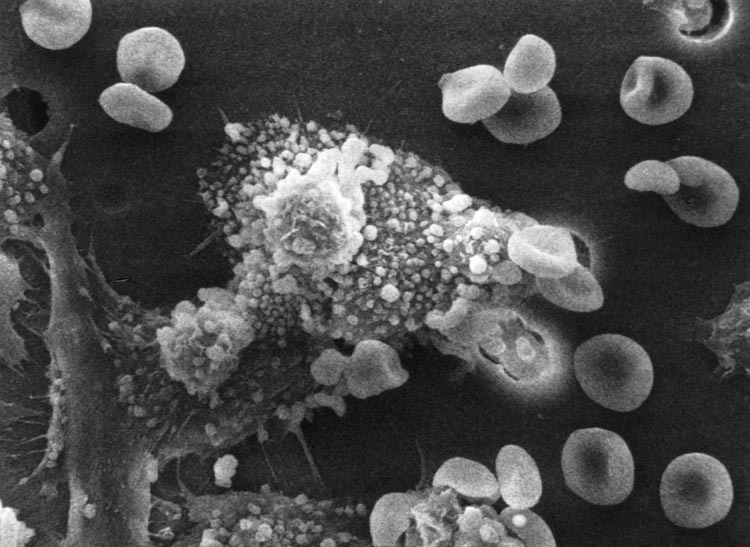Claims that only limited protection against cancer comes with the recommended ‘Five a Day’ of fruit and vegetables have just been backed by a Nobel laureate.
Speaking at the Association for International Cancer Research’s landmark 30th anniversary conference near St Andrews, Sir Tim Hunt, a principal scientist with Cancer Research UK, said there is no evidence in epidemiology that diet can help people avoid the disease.
He went as far as to suggest that the adage “a little of what you fancy does you good” should not be discounted, but also drew the line at smoking and said that prevention is very much better than cure.
A highly respected figure in the field of research into cell cycles and protein synthesis, Dr Hunt was addressing 200 delegates from all over the world at Fairmont St Andrews.
He said anything, such as smoke, which damages chromosomes, and even the air we breathe and the water we drink — which attack our DNA — can cause cancer.
“The two most terrible poisons in the environment causing cancer are air and water,” he said.
“If you stopped breathing, you wouldn’t get cancer, but you have to breathe to stay alive.
“It is the air itself, not any pollutants in it, and water which are constantly attacking our DNA.”
Endorsing AICR’s concentration on funding basic cancer research, Sir Tim said there are still very basic things not understood about the disease, and that people’s perception of research is often mistaken.
“Research is carried out by people trying to understand the world and poking and probing and discovering things they were not looking for,” he went on.
“We discover something when we are looking for something else.
“It is amazing how misunderstood that is.
“There is a marked difference in applying knowledge you already have to obtaining new knowledge.
“It is manifestly clear we can’t apply the knowledge we have to curing cancer because people are still dying from it.”
Cancer is, he said, a genetic disease caused when the instructions within cells go wrong and the cells start dividing out of control.
“The great triumph of 20th century biology is the discovery that DNA makes RNA protein and that the secrets of RNA are translated into protein,” he said.
He came into cancer work after watching his own mother die of colon cancer.
He wanted to find how the disease seemed to thrive inside her stomach while her body wasted away.
Happily, though, he can also contrast his mother’s death in 1977 with the survival of his mother-in-law, now 90, who was treated in her 80s for an “enormous brain tumour.”
Following surgery she is alive and well thanks to advances in medical technology, says Dr Hunt, who also believes cutting out cancer, when that is an option, is arguably the only way to cure the disease.
He said cancer is mainly a disease of old age, perhaps surprisingly given the number of reports of young people dying.
“Not many people under 60 die of cancer, it is only a small percentage of cancer patients who do,” he said.
Born in 1943, Sir Tim went up to Cambridge to read Natural Sciences in 1961 and spent almost 30 years there, mostly working on the control of protein synthesis.
In 1982, he discovered cyclins, which turned out to be “Key Regulator(s) of the Cell Cycle,” and it was this that led to a share of the Nobel Prize in Physiology or Medicine in 2001, together with Lee Hartwell and Paul Nurse.
Also speaking at the conference is cancer survivor Dave Cook who, after undergoing treatment for testicular cancer, embarked on a bid to raise funds for AICR in 2008.
The 24-year-old and three friends drove a London taxi from Ormskirk in Lancashire to Istabul in Turkey, in an adventure he called the “One Ball Rally.”
